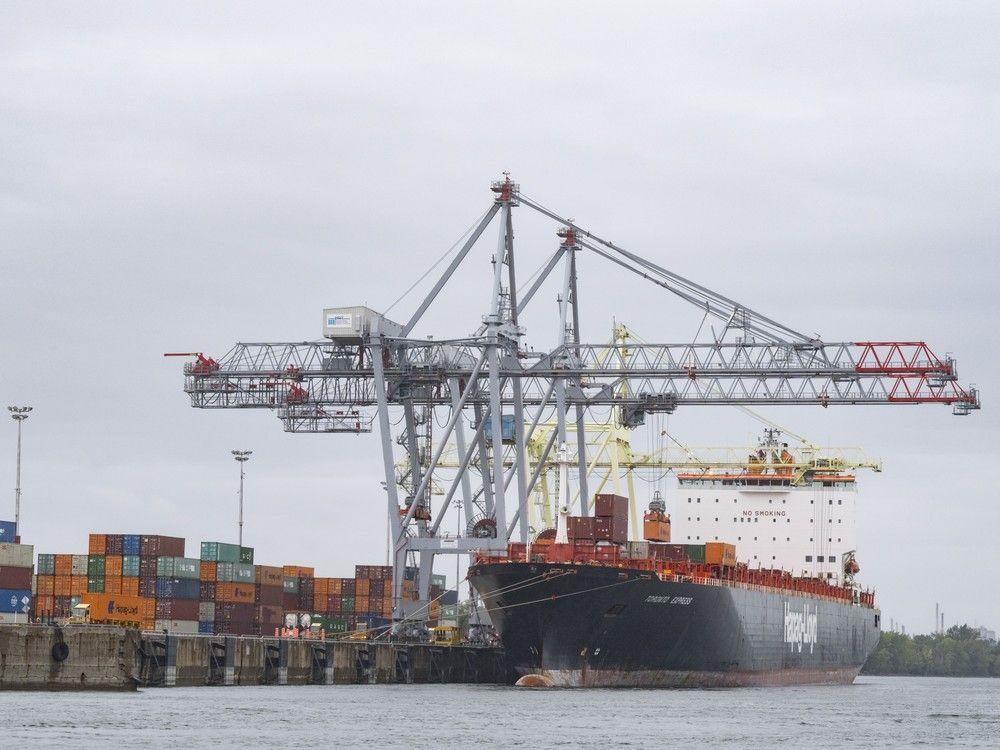
Prime Minister Justin Trudeau says he’s concerned about the long-term consequences of a possible strike at the Port of Montreal and is hoping for a negotiated settlement.
Such labour disruptions can cause long-term economic pain, he told an event organized by the Chamber of Commerce of Metropolitan Montreal on Tuesday.
Article content
“The uncertainty, the disruption to supply chains” don’t just cause problems during strikes. After port activities resume, some customers who had found alternative transportation never return to ports, he noted.
Trudeau was taking part in a question-and-answer session with Michel Leblanc, president of the chamber of commerce.
“We have a perpetual, recurring crisis called port strikes in Canada,” he told Trudeau. “As we speak, everybody here thinks we’ll have a strike at the Port of Montreal within weeks. We have seen this coming for months.”
He asked the prime minister if “we’re condemned to live through a strike at the port” and whether the port should be deemed an essential service.
“Workers in all industries are concerned about what the future holds,” Trudeau said.
“The way we resolve those worries is by reassuring them and showing them that there is equity and prosperity for them, as well, that there’s a place for workers to succeed in an economy that’s succeeding.”
Last summer, a strike by Vancouver port workers stalled billions of dollars worth of cargo for 13 days. At the time, some premiers urged the federal government to enact back-to-work legislation.
“The best way to settle disputes is at the negotiating table,” Trudeau said Tuesday.
“I’m not a big believer in shortcuts.
“I know sometimes legislation appears to be the easiest solution but I prefer to take events on a case-by-case basis, defending workers, defending economic growth, defending employers, and expect that people can work things out in the right way.”
In 2021, the Trudeau government used back-to-work legislation to force 1,150 striking Port of Montreal employees back to work.
At the time, Ottawa said the strike was hurting Canadian businesses and farmers and “adding significant stress to supply chains already under strain from COVID-19.”







